Ipswich murders: Prostitution returns to town's streets
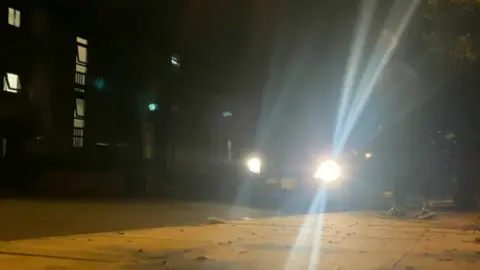 BBC
BBCFifteen years ago five women were taken from the streets of Ipswich and murdered in the space of six weeks. Prostitution has now returned to the streets of the town. What is it like for the women involved and what is being done to ensure their safety?
"I'm quite scared, yes," says Amy, one of a handful of women currently working in Ipswich.
Amy, not her real name, was recently taken against her will to a man's house. She managed to telephone the police from the bathroom and was rescued and brought back to town.
"[A man] took me to the countryside and said 'you're mine for a few hours' and he paid £30," she says.
"It was very scary, you don't know if you're coming home or not."
She says a small number of women are currently operating as sex workers on and around London Road - the area once known as Ipswich's red light district.
"It is not safe, definitely not safe," she says.
Asked whether she remembers what happened in the town 15 years ago, Amy, who is dependent on heroin, says she does.
And she worries about it.
"Yes, it comes to mind," says Amy. "A lot."

The Ipswich murders
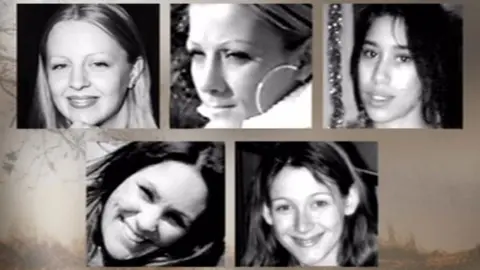
Tania Nicol, Gemma Adams, Anneli Alderton, Paula Clennell and Annette Nicholls were murdered between 30 October and 10 December 2006. Steve Wright is serving a whole life jail term for killing the women.
Tania Nicol, 19, was the youngest and first of Wright's victims. The former Chantry High School pupil went missing from the red light area near Ipswich Town FC's Portman Road on 30 October. Police divers found her body on 8 December at Belstead brook at Copdock.
Gemma Adams, 25, who had grown up in Kesgrave, was the second to go missing early on 15 November. Her boyfriend of 10 years reported her missing after she failed to respond to his text messages. Her body was found on 2 December 2006.
Anneli Alderton, 24, went missing on 3 December 2006. Her body was found in woodland at Nacton seven days later, deliberately "posed" in a "cruciform" shape with arms outstretched. The former Copleston High School pupil was found to be three months pregnant at the time of her death.
Annette Nicholls, 29, was last seen alive on 8 December 2006. Her naked body was also found in a "cruciform" pose, four days later. Her body was found along the Old Felixstowe Road, close to the body of Paula Clennell.
Paula, 24, had last been seen alive on 10 December 2006. She had given a TV interview just days before her disappearance, admitting she was "wary" about getting into cars but had to fund her £500-a-day drug habit. She was found dead on 12 December 2006.

Amy is very mindful of the dangers of the work she is doing and says she would welcome some form of community centre for, as she puts it, "working girls" and "girls in that situation" where they can talk with those who "are recovering from that situation".
Such a centre, she says, would both improve the safety of sex workers as well as supporting them out of the work.
"There just isn't enough support," she says.

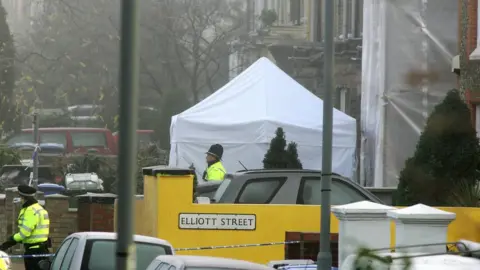 AFP/Getty Images
AFP/Getty Images"Men have been very violent, they've been nasty, they've attacked me, grabbed my bags," says Kate, another woman working in the area.
"They won't leave when you have to go," she says. "I feel scared most of the time."
Kate, again not her real name, returned to sex work three months ago because she needed the money.
"Every day for a week I was beaten up, punched, robbed, grabbed and strangled," she says. "It got a bit much.
"It is not very safe. Sometimes I say no and it still happens."
She knew two of the women killed by Wright.
"I went to school with a couple of them," she says. "They were on drugs too, sadly."
"It all came back when I was strangled , I thought 'oh my God it is still happening'," she says. "Some girl was passing and she told him to get off me. I had to run away."
Men often try to take her into the nearby woods.

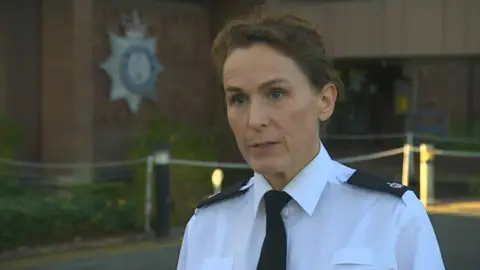
Supt Jane Topping, of Suffolk Police, says while the force was aware of the return of prostitution to Ipswich's streets, the level of violence they were experiencing had not been fully appreciated.
"I didn't realise the extent of the problem," she says, "as it has not been reported to us.
"I really do urge, even if you witness it, and you're not a victim yourself please call 999 if it is urgent, or 101 or report it online.
"Going back to 2006, it is nothing like the scale of what it was then.
"I would say it is a small cohort of women who are engaged in sex work.
"We have identified them and we are working with our partners to make sure they can safely exit that work."
The BBC asked Suffolk Police for the number of arrests or cautions involving sex workers in recent months. The figures, the force says, are not readily available.
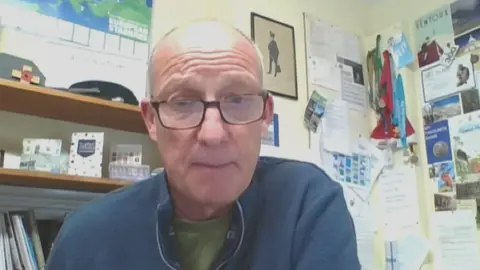
Alasdair Ross is Ipswich Borough Council's member responsible for community protection.
He says better rehabilitation services were essential to support sex workers out of the trade.
"It is a concern," he says. "We've always believed there has been some sort of prostitution, whether it had moved or was behind closed doors and there have been sporadic reports since.
"But over the last six months we have seen a number of girls returning to the street."
He says the reason the women have turned to sex work is often related to drug dependency.
"And we are working with multi-agencies like we have in the past to help eradicate prostitution," he says.
"We managed to do that in 2006 onwards by working together and we need to step up to do that again because we have had reports of girls returning to the street and that may be due to poverty and often it is due to drug dependency.
"The missing link really in all of this is that there is not a good enough rehabilitation service and that is what we would really like to see the government focus on, so we can get some of these girls off drug dependency and make a better life for themselves."

Find BBC News: East of England on Facebook, Instagram and Twitter. If you have a story suggestion email [email protected]
